Science Ticker
A roundup of research and breaking news
Sign up for our newsletter
We summarize the week's scientific breakthroughs every Thursday.
-
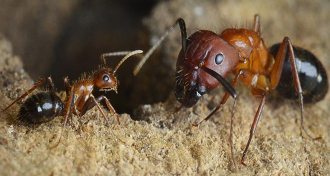 Animals
AnimalsAnts’ size and profession controlled by chemical tags on DNA
Epigenetic marks determine whether female Florida carpenter ants are soldiers or foragers.
-
 Astronomy
AstronomyEquipment failure pushes back Mars lander mission
The launch of the Mars InSight lander is suspended until at least 2018 because of a faulty seismometer.
By Andrew Grant -
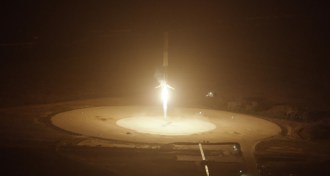 Tech
TechSpaceX rocket blasts to space and back, sticks the landing
A Falcon 9 rocket section lands after launching a set of satellites during a successful test of SpaceX’s reusable rocket parts.
-
 Planetary Science
Planetary ScienceCassini spacecraft preps for one last flyby of Enceladus
December 19 marks the last time the Cassini spacecraft flies in for a close look at the Saturnian moon Enceladus.
-
 Animals
AnimalsMale monkeys go rouge for mating season
Bright red lip color separates players from bachelors during monkey mating season.
-
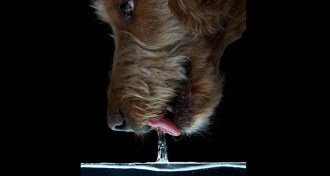 Life
LifeScience explains what makes dogs such sloppy drinkers
There’s hidden precision in the splashy mess of a dog drinking.
By Susan Milius -
 Plants
PlantsSingle gene influences a petunia’s primary pollinator
Mutations on a single gene determine how much ultraviolet light a petunia flower absorbs, and in turn, which animal pollinates the flower.
-
 Quantum Physics
Quantum PhysicsGoogle’s quantum computer speeds up, but practical use is unclear
Google’s D-Wave quantum computer is getting faster, but it’s still unclear whether it will ever outperform regular computers at completing useful tasks.
By Andrew Grant -
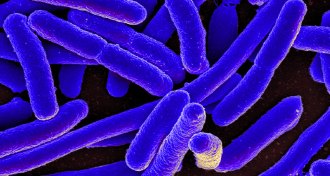 Life
LifeMicrobes show up on schedule after death
Microbes in the soil beneath dead bodies offer forensic clues for time and place of death.
By Meghan Rosen -
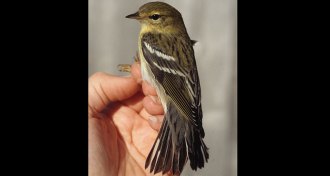 Animals
AnimalsSome warblers make their long winter migration even longer
Blackpoll warblers in western North America head east to fatten up before their transoceanic migration.
-
 Climate
ClimateGlobal carbon emissions fell in 2015, despite economic growth
Society’s carbon footprint fell slightly in 2015, largely due to decrease coal consumption in China, researchers report.
-
 Neuroscience
NeuroscienceBusy eyes can make ears go temporarily deaf
When challenged with a tough visual task, people are less likely to perceive a tone, suggesting that perceptual overload can jump between senses.